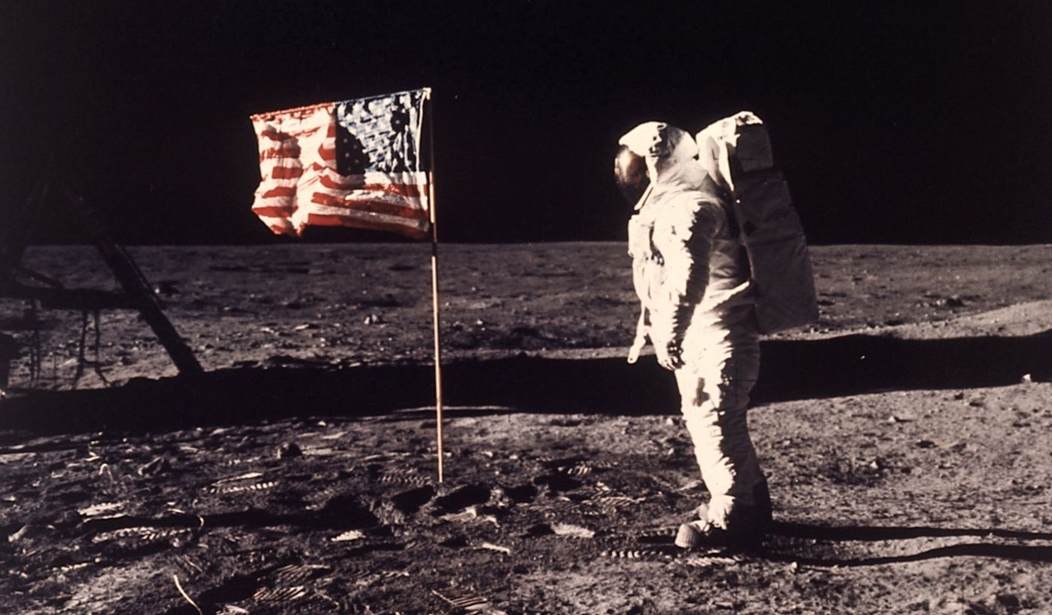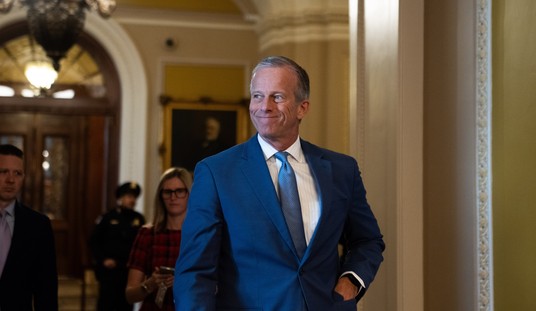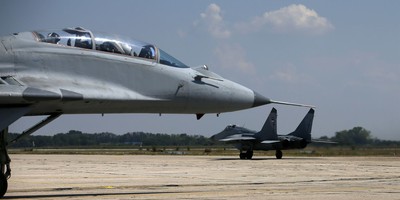This month represents the 60th anniversary of the first human in space, Russian Yuri Gagarin – whose flight triggered the next trip into space, by American Alan Shepherd – on May 1, 1961. From that point forward, through America’s Mercury, Gemini, and Apollo missions – the Great Space Race was on.
Then, in a wonder to match all wonders, on July 20, 1969, Neil Armstrong, and Buzz Aldrin – two fearless Americans – were the first humans to walk on the Moon; colleague Mike Collins circled in lunar orbit. The only humans ever to walk on the Moon – have been Americans. And we just lost Mike Collins, who was a master of the Command Module.
In these troubled times, when patriotism seems at low ebb and minds mull the worst – not best – in humanity and America’s unrivaled and historic leadership, remembering that first mission to the Moon, Apollo 11, seems entirely appropriate.
For more than 50 years, Americans have said “If we can send men to the Moon, we can…” and fill in the blank. We can create a COVID-19 vaccine in less than a year, cure diseases, end wars, find peace, solve problems. Fittingly, Neil and Buzz left a plaque on the Moon, reminding eternity that “We come in peace for all Mankind.”
The curious part – or perhaps this is just human nature – is how easily we forget out greatness. In post-Soviet Russia there are still airports, roads, and legacy institutions named for Yuri Gagarin. To be specific, for example, the Russians fly in and out of key locations – always honoring the name of their great space pioneers, especially Gagarin.
Recommended
Thus, you will find the Yuri Gagarin Cosmonaut Training Center in Star City (Moscow Region), named for Gagarin on April 30, 1968. That facility is responsible for training all cosmonauts for space missions; in planes and in training, they are reminded that they once stepped off into space – even if the Americans got to the Moon, and they did not.
Likewise, Gagarin Air Force Academy is located in Monino (Moscow Region) and is also named for Gagarin. Citizens, aviators, and those who aspire for a chance to walk in space – are invariably reminded of the nation’s once forward pressing space mission. And in the nature of remembering the best, not the worst, this is all well and good.
The time is coming, and perhaps this is that time, when Americans too must look back with pride, not with self-doubt, condemnation, or self-vilification. In no area of achievement – have Americans lagged, or lagged for long. We are competitors, aiming high – as a matter of personal and national pride.
And yet when looking for epic achievements, as Americans and humans, hardly an event comes close to the first Moon landing. The Apollo 11 triumph was a triumph of many, personified by a few. It was the triumph of Americans over the seemingly impossible, but also of humankind against all odds - and the forbidding challenges of gravity, space, distance, temperature, or more broadly science, engineering, security, and human safety. Yet we did this remarkable thing.
The curiosity is why we do not more often think about our past in terms that inspire our future. One way would be to do at others do, and as we have historically done. If we have Kennedy and Johnson Space Centers, if we have Roosevelt field – from which Charles Lindbergh took off to cross the Atlantic – why not take the states in which Armstrong and Aldrin grew up, and Collins resided – and name airports, if not spaceports, after them? Why not an airport in Ohio for Armstrong, Newark Airport in New Jersey being named for Aldrin, and one in Florida for Collins. Then we would all remember and never forget them.
Early indications are we are starting to wake up, have a Moon mission in planning, and are thinking again about the past – in a positive way. Already the New Jersey Aviation Hall of Fame has issued a proclamation urging Newark Airport be named for Aldrin, and just last month pushed a proclamation that an Aldrin statute be placed in the airport. Why not a statue of all three Apollo 11 astronauts in Congress’ famous “Statuary Hall?”
The point is powerful, poignant, and timely. We Americans are doers, as well as dreamers, and we know how to solve big problems. When the Russians put a man in space, we did too – then put two on the moon, before sending more that way. When we have a challenge – COVID to conflict – we work to solve it. “If we can put men on the moon, we can … do anything.” And how do we remember – by keeping those names, as others in the world do, before us. How about we move that way again proud of who we are? That kind of inspiration, fires others to be and do and dream and achieve. Time for more of that!
John Cody Mosbey, PhD (Trinity College, Dublin), is a retired U.S. Air Force Colonel, who writes frequently on space, national security, and geopolitical issues.























Join the conversation as a VIP Member